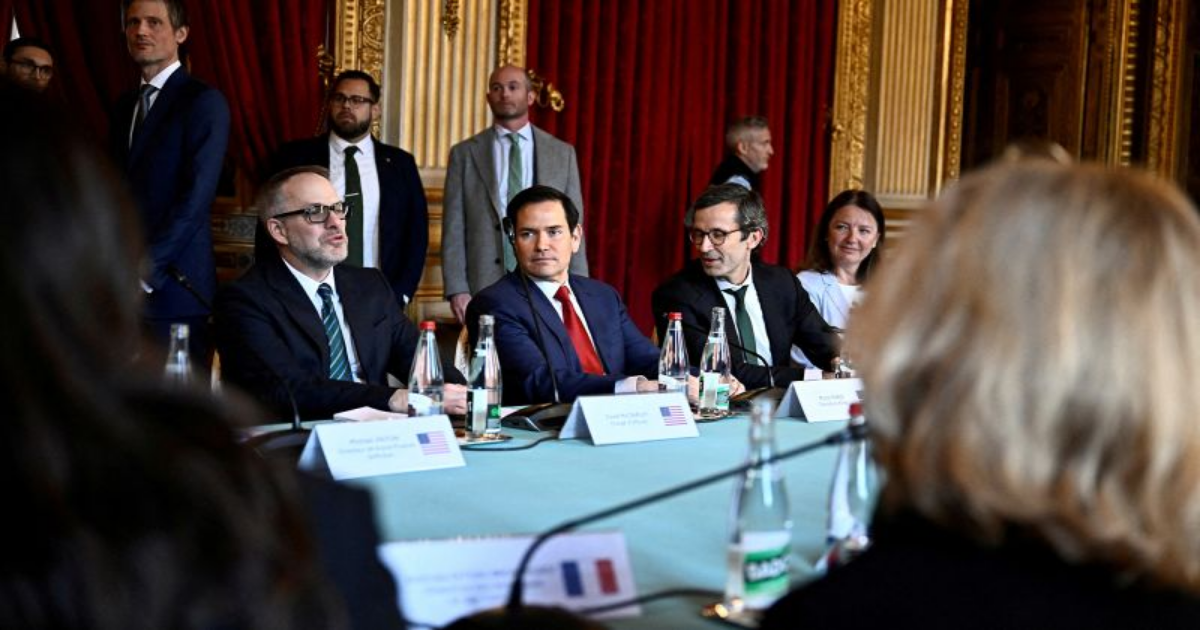Moscow CNN —
The Trump administration’s patience with peacemaking for Ukraine, always painfully thin, now appears to be running out altogether.
“If it is not possible to end the war in Ukraine, we need to move on,” US Secretary of State Marco Rubio told reporters after meeting European and Ukrainian officials for talks in Paris.
For President Donald Trump, who swept into office convinced he possessed the skills to quickly end the gravest conflict in Europe since the World War II, there is immense frustration with the lack of progress.
“The President has spent 87 days at the highest level of this government repeatedly taking efforts to bring this war to an end,” Rubio added, as the bloodshed in the war zone continues unabated.
So what would to “move on” look like?
One option might be redouble US military support for Ukraine. Despite Trump’s efforts to court the Kremlin, or perhaps because of them, Russian intransigence has emerged as the main obstacle to peace, such as Moscow’s foot-dragging over Trump’s proposed 30-day ceasefire, to which Ukraine alone has agreed.
Admittedly, fresh deliveries of billions of dollars more of American arms to Ukraine may be an unpopular policy U-turn among some Trump supporters, but a newly invigorated Ukrainian push-back on the battlefield could encourage the Kremlin to reassess its negotiating position.
New, properly tough US sanctions on Russian oil and gas, and those who buy it, have also been touted as a potential means of applying maximum pressure on Moscow.
Problem is, forging a peace in Ukraine is just one of the agenda items in what Trump and the Kremlin see as a much broader, lucrative reconfiguration of US-Russian relations – involving energy deals, space exploration and mining contracts – which Trump may be reluctant to jeopardize.
Back in Paris, Rubio hinted at a possible second, more likely, option.
“It’s not our war. We didn’t start it. The United States has been helping Ukraine for the past three years and we want it to end, but it’s not our war,” Rubio stressed, alluding to the possibility that the US could simply walk away, leaving Ukraine and its European backers to face Russia alone.
That would pose a huge challenge, given Ukraine’s depleted resources and Europe’s dire unreadiness, currently, to bolster the front lines with sufficient military supplies of its own.
For the Kremlin, American disengagement is a double-edged sword. It may give its battered forces a freer hand in Ukraine, but it doesn’t necessarily deliver the win that Vladimir Putin, the Russian leader, insists that he wants, instead dragging out the pain.
Russian troops, who are being killed and injured at an alarming rate, would continue to be fed into the brutal “meat grinder” of the Ukrainian front lines, increasing simmering social pressure on the Kremlin at home.
Pressure on the Russian economy, already weakened by war, would also increase. If there is no peace deal, there is unlikely to be any easing of the punitive international sanctions already straining fragile Russian finances.
Putin, bent on total victory, may regret passing up the extraordinary chance offered by Trump to end his disastrous Ukraine war and cut his country’s substantial losses.
The Trump administration insists it has not yet entirely given up – just hours after Rubio’s comment, Vice President JD Vance said the White House was “optimistic” it could still end the war – but is signalling that that point may be drawing close.
“We need to determine very quickly now, and I’m talking about a matter of days, whether or not this is doable,” Rubio said of peace in Ukraine before heading back to Washington.
The Kremlin is also engaging in the brinkmanship, its spokesman insisting “there are no contacts planned for this week, but, on the other hand, let’s say that the established contacts allow us to very, very quickly agree on such a conversation if necessary.”
There is, it seems, still a narrow scope for a face-saving, last minute breakthrough. But time and patience in Washington to end the war in Ukraine seems to be rapidly running out.





